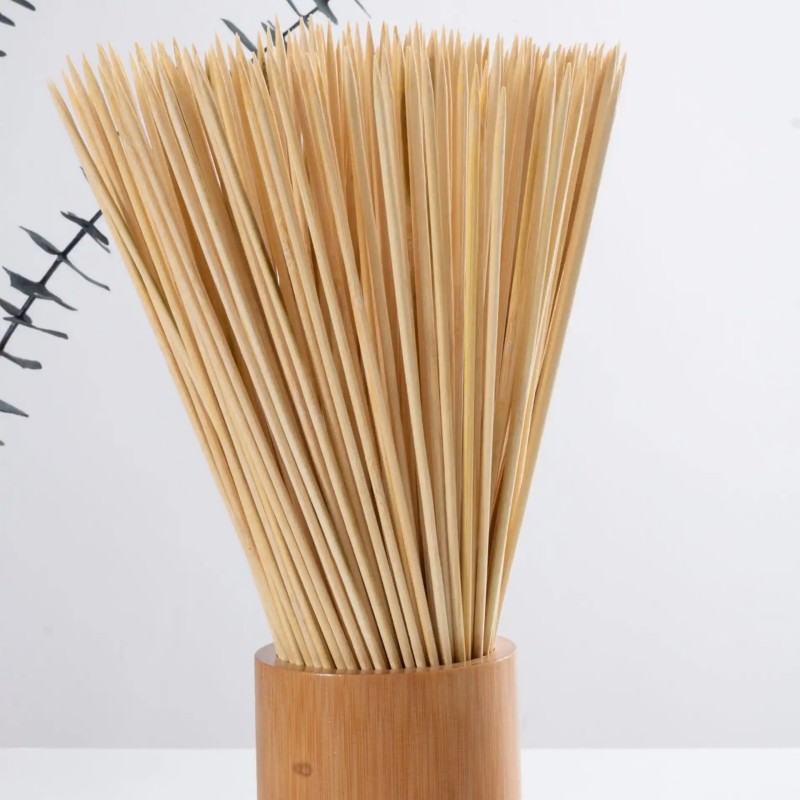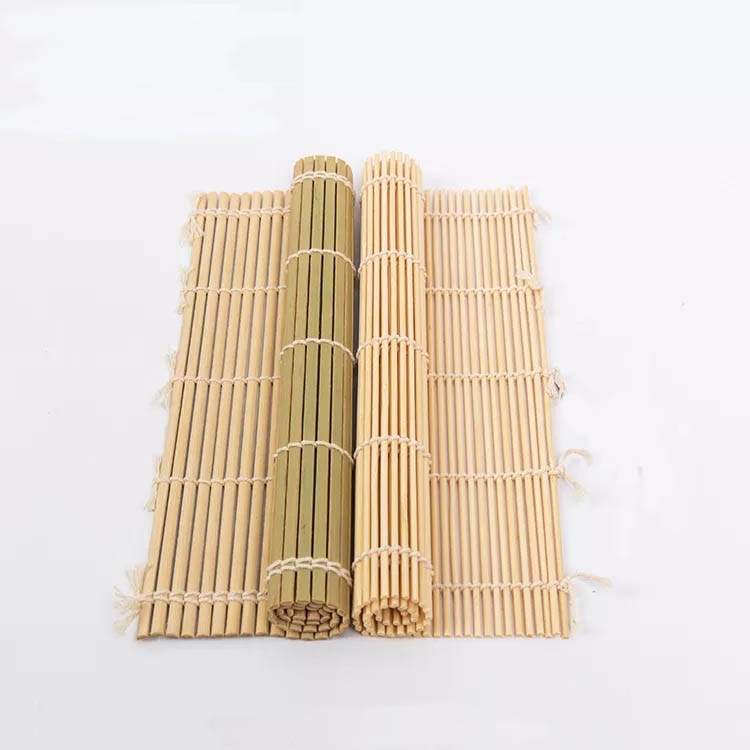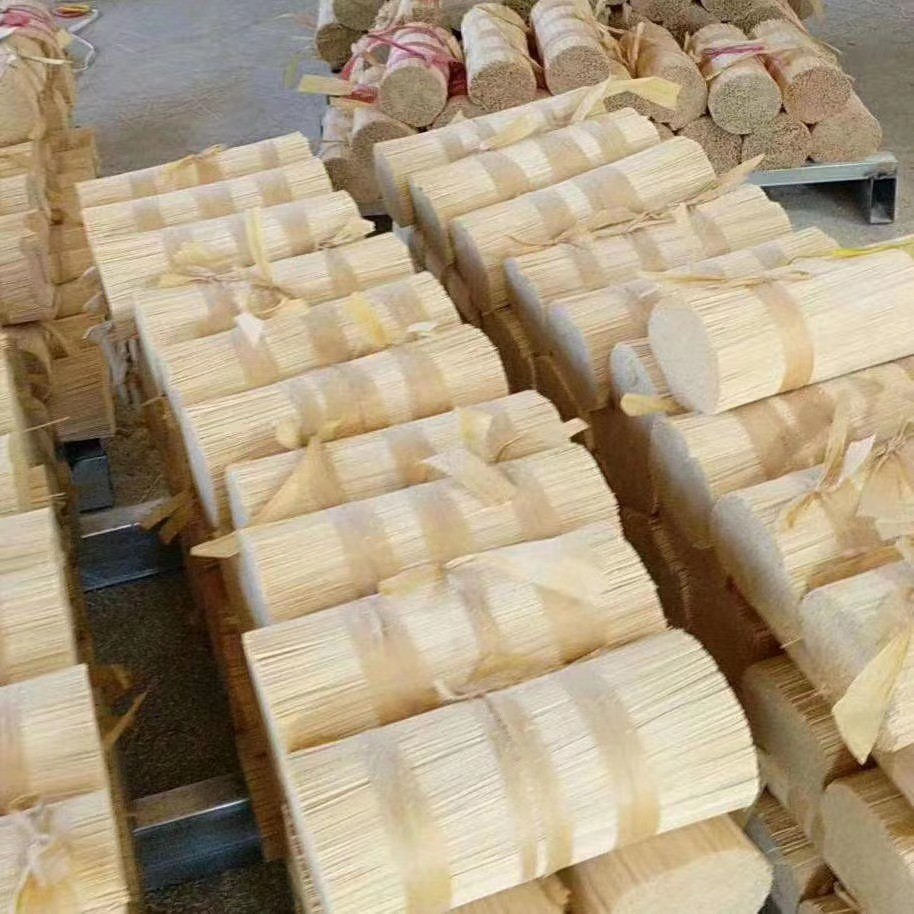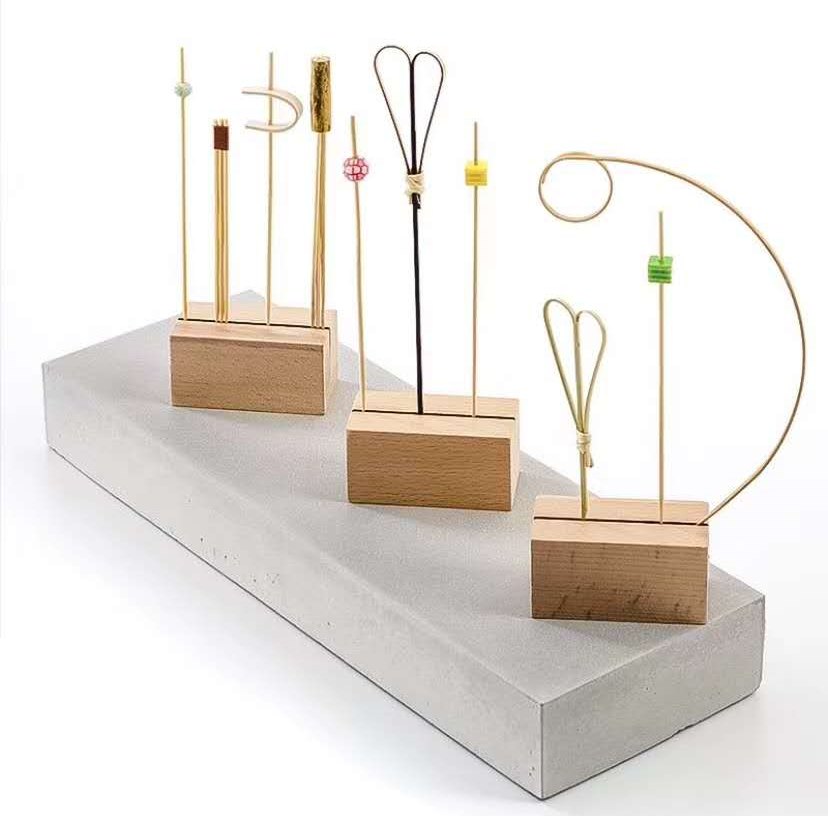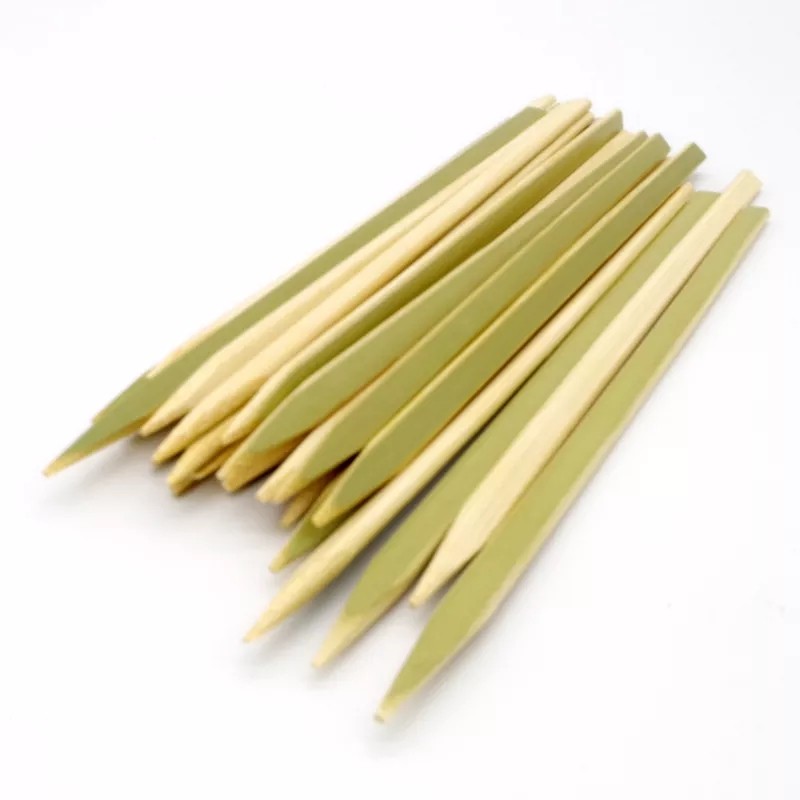Bamboo and wood skewers are popular, planet-friendly substitutes for plastic or metal options, offering versatility while minimizing environmental harm. Here’s a breakdown of their benefits, uses, and sustainability:
Why Choose Bamboo or Wood Skewers?
- Biodegradable & Compostable:
- Break down naturally in soil or compost, unlike plastic (which can take centuries) or metal (which requires energy-intensive recycling).
- Leave no microplastic residue.
- Renewable Resource:
- Bamboo: A fast-growing grass (reaches maturity in 3–5 years) that regenerates without replanting.
- Wood: Opt for sustainably sourced wood (e.g., birch, bamboo-derived wood) certified by organizations like FSC (Forest Stewardship Council).
- Low Carbon Footprint:
- Production requires less energy compared to plastic or metal.
- Bamboo absorbs more CO₂ than trees, making it a carbon-negative material.
- Non-Toxic & Food-Safe:
- Naturally chemical-free (unlike plastic, which can leach toxins when heated).
- Avoid treated or dyed skewers unless certified food-safe.
Applications of Bamboo & Wood Skewers
- Culinary Uses:
- Grilling: Ideal for kebabs, satay, veggies, or shrimp.
- Tip: Soak skewers in water for 30 minutes to prevent burning.
- Baking: Secure stuffed meats, rolled appetizers, or desserts.
- Food Styling: Elevate hors d’oeuvres, fruit platters, or cake pops.
- Grilling: Ideal for kebabs, satay, veggies, or shrimp.
- Crafts and DIY:
- Plant Supports: Stake small herbs or seedlings.
- Art Projects: Build mini structures, mobiles, or holiday decorations.
- Floral Arrangements: Anchor flowers in vases or bouquets.
- Everyday Hacks:
- Stir drinks, test baked goods, or unclog small drains.
Bamboo vs. Wood Skewers
| Feature | Bamboo Skewers | Wood Skewers |
|---|---|---|
| Material Source | Fast-growing bamboo grass (sustainably harvested). | Typically birch, bamboo-derived wood, or other FSC-certified trees. |
| Strength | Denser and more heat-resistant. | Slightly softer but still durable. |
| Eco-Impact | Lower footprint due to rapid regrowth. | Depends on forestry practices (opt for FSC-certified). |
| Cost | Often cheaper due to abundant supply. | Slightly pricier for premium woods. |
Buying Tips for Sustainability
- Look for certifications: FSC, Rainforest Alliance, or organic labels.
- Avoid plastic packaging: Choose brands that use recycled or biodegradable wrappers.
- Buy in bulk to reduce packaging waste.
Disposal & Reuse
- Compost: Break used skewers into small pieces for faster decomposition.
- Reuse: Clean and sanitize lightly charred skewers for crafts or gardening.
- Recycle: Not typically recyclable, but biodegradable options return to the earth harmlessly.
Final Note: Bamboo and wood skewers are simple yet impactful choices for eco-conscious consumers. By opting for these natural materials, you support sustainable forestry, reduce plastic pollution, and enjoy a toxin-free cooking experience!

